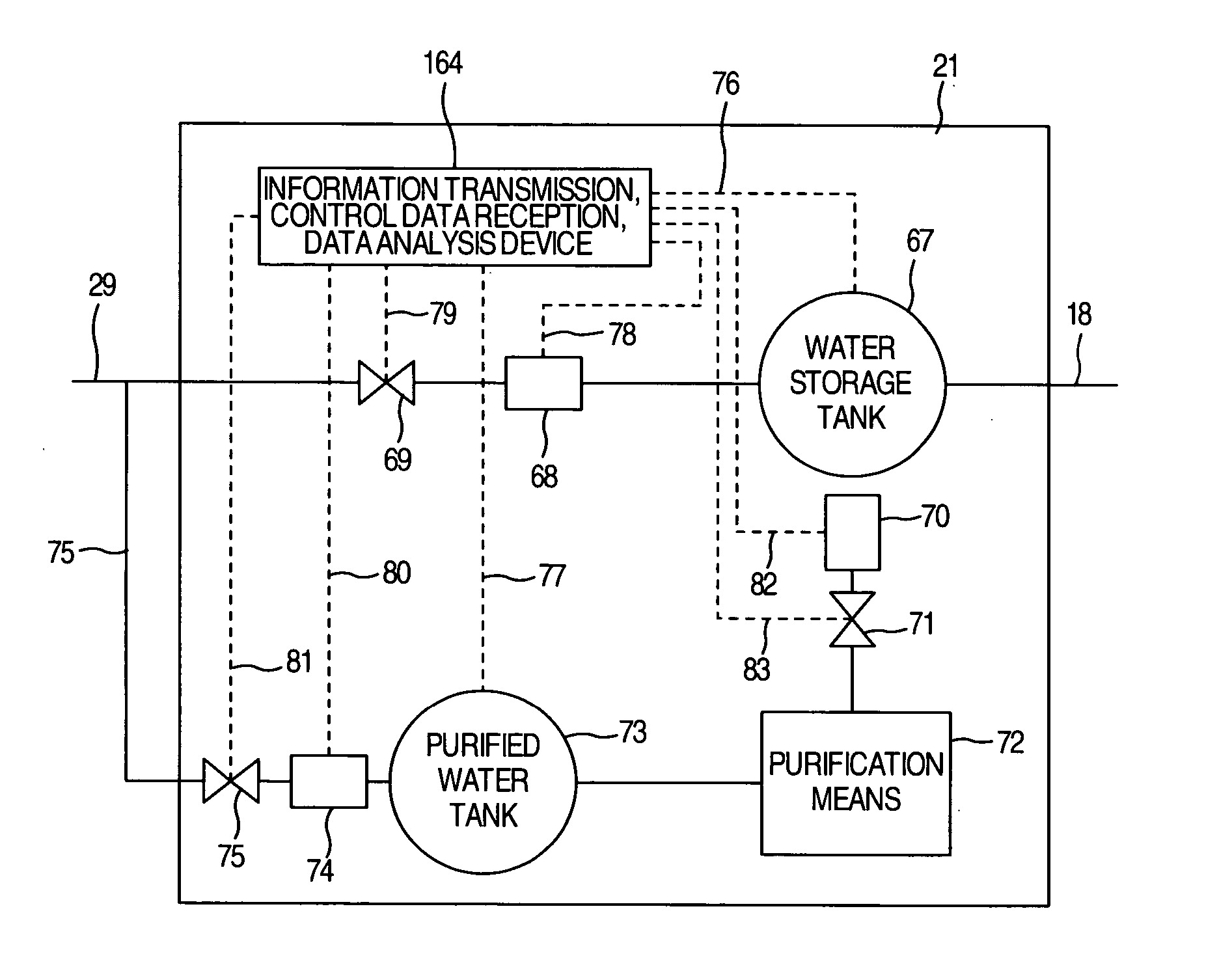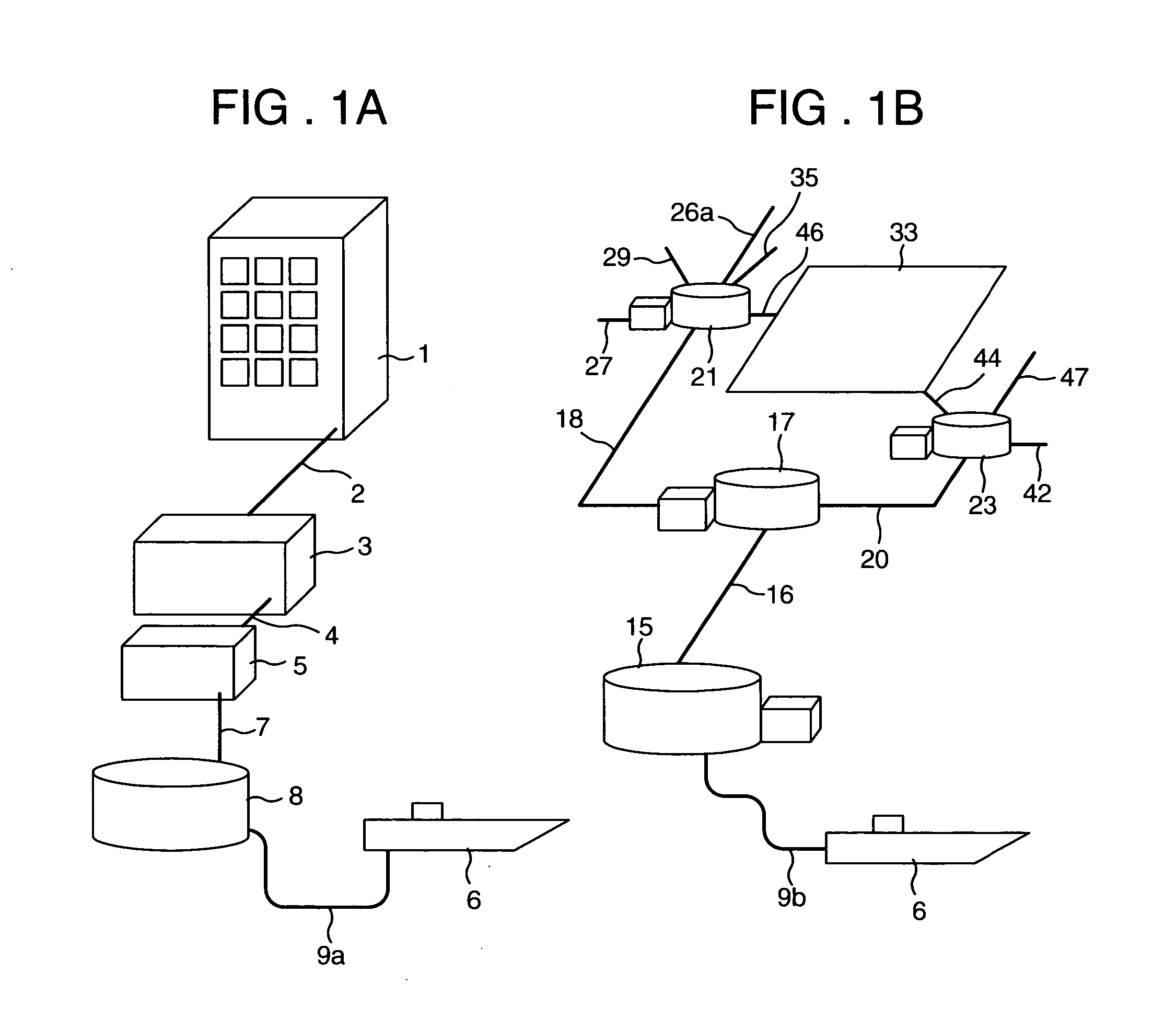Freshwater supply system
a technology for freshwater supply and transportation, applied in the direction of special purpose vessels, vessel construction, instruments, etc., can solve the problems of high cost of desalting, high possibility of ships not sailing in the future, bad balance of the hull, etc., and achieve the effect of effective use of domestic waste water
- Summary
- Abstract
- Description
- Claims
- Application Information
AI Technical Summary
Benefits of technology
Problems solved by technology
Method used
Image
Examples
first embodiment
[0041] (First Embodiment)
[0042]FIG. 1A is a view showing a system configuration, in which domestic wasted water containing a large amount of organic matter is subjected to purifying treatment, the treated fresh water is filled in a hold or a ballast water tank of a transport ship such as tanker, etc. to be transported to a dry or semi-dry territory.
[0043]FIG. 1B is a view showing a system configuration, in which fresh water is conveyed from a transport ship to a holding tank on shore or at sea and supplied to a group of tanks in a region where fresh water is consumed.
[0044]FIG. 2 is a flowchart illustrating, in further detail, the system shown in FIGS. 1A and 1B.
[0045] Domestic wasted water discharged from residential means 1 such as apartments, etc. is conveyed through underground sewers 2, etc. to a sewage-treatment plant 3, in which plant organic matter, etc. in domestic wasted water is purified by the coagulating sedimentation system, the activated sludge method, which makes ...
third embodiment
[0085] (Third Embodiment)
[0086]FIG. 5 shows a still further embodiment.
[0087]FIG. 5 is a flow diagram of a system according to the still further embodiment of the invention.
[0088] A difference between the embodiment shown in FIG. 5 and the embodiment shown in FIGS. 1 and 2 concerns filling of fresh water containing domestic wasted water in ships and resides in constructing a ballast-water management system that can ensure supply locations of fresh water throughout the world and control where oceangoing ships can be filled with ballast water in a most inexpensive operation and in a shortest time.
[0089] That is, the ballast-water management system makes it possible to fill ballast water, which is fresh water, in an A country, receive information of fresh water stock in a B country in the case where an amount of fresh water in the A country is short of a necessary amount, and fill fresh water corresponding to shortage, as ballast water, in the B country on the basis of the informati...
PUM
| Property | Measurement | Unit |
|---|---|---|
| volumes | aaaaa | aaaaa |
| residual number | aaaaa | aaaaa |
| humidity | aaaaa | aaaaa |
Abstract
Description
Claims
Application Information
 Login to View More
Login to View More - R&D
- Intellectual Property
- Life Sciences
- Materials
- Tech Scout
- Unparalleled Data Quality
- Higher Quality Content
- 60% Fewer Hallucinations
Browse by: Latest US Patents, China's latest patents, Technical Efficacy Thesaurus, Application Domain, Technology Topic, Popular Technical Reports.
© 2025 PatSnap. All rights reserved.Legal|Privacy policy|Modern Slavery Act Transparency Statement|Sitemap|About US| Contact US: help@patsnap.com



